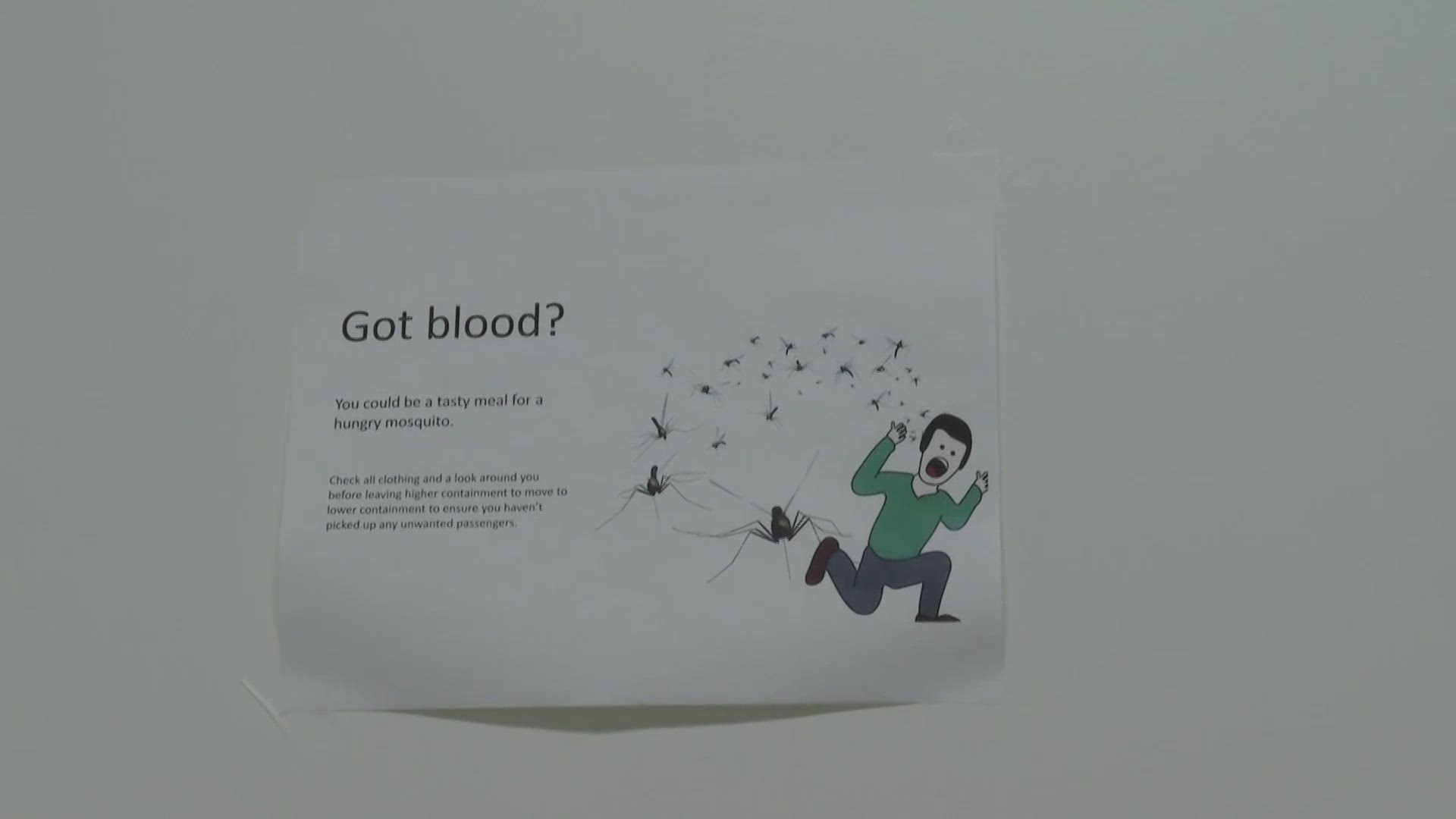TEXAS, USA — It's the start of summer which means mosquitoes, gnats, flies and all the bugs are in full force. They're the talk of social media groups, and Central Texans want them gone.
6 News spoke with three local experts who share tips on why the bugs seem more intense this year and what you can do to prevent them.
The Bug Master CEO, Dauphin Ewart, says the big thing to remember is that as little as a tablespoon of water can serve as a breeding site for mosquitoes. The more areas that you have, the higher the mosquito population around you is going to be.
Ewart recommends the following:
- Minimizing the number of breeding sites. The other really big one is gutters because they tend to be full of leaves and they hold water so cleaning them out will help.
- Wear mosquito repellent, it helps.
- Get treatments – we now have very effective ways to treat yards for mosquitos.
Service manager at 855Bugs, Robby Milam, says moisture, warmth and carbon dioxide all attract the bugs. However, one main factor is causing a spike in their recent development. Milam says the recent rainfall has been a big proponent.
With rainfall comes standing water attracts the bugs as they breed in aquatic locations, says Jason Pitts, Ph.D., assistant professor of biology in Baylor’s College of Arts and Sciences.
The critters then fly right to bushes, trees, leaves and flowers - all places where Central Texans want them gone.
Pitts and Milam recommend to dump water out of flowering pots and unclog rain gutters.
As far as gnats go, Milam says people should work on sanitation issues.
"If you have decaying material on some of your house plants, they will live in that," Milam said. "They will lay their eggs in that, so they're going to keep coming back. You want to make sure your drain is rinsed. That'll help out because a lot breed and live down there in your drains."
Pitts shared that home remedies don't work for everyone because there are many species of different types of insects. According to Pitts, there are between 85 and 90 different species of mosquitoes in Texas.
Even if it is the same species, lighting, shading, temperature, humidity and other odors could affect the effectiveness of the particular products.
"In one situation, maybe even a homegrown or a natural kind of remedy or repellent or something, might be effective, whereas maybe even a short distance away there's a completely different species that's causing the nuisance that won't be affected by that," Pitts said. "That's the challenge of trying to suggest a one size fits all."
Pitts says another misconception is fans. They can be a double-edged sword. People may think the fan is blowing the mosquito away, but in reality, they are exposing their odor to more bugs, attracting mosquitoes from far away.
To reduce your chance of being bitten, Pitts suggests reducing their breeding ground, using DEET repellants and avoid peak biting times. He says mosquitoes typically bite when the sun is rising or setting, so be cautious when participating in outdoor activities.
Below are websites providing more information on how to avoid insect bites and insect-transmitted illnesses:

